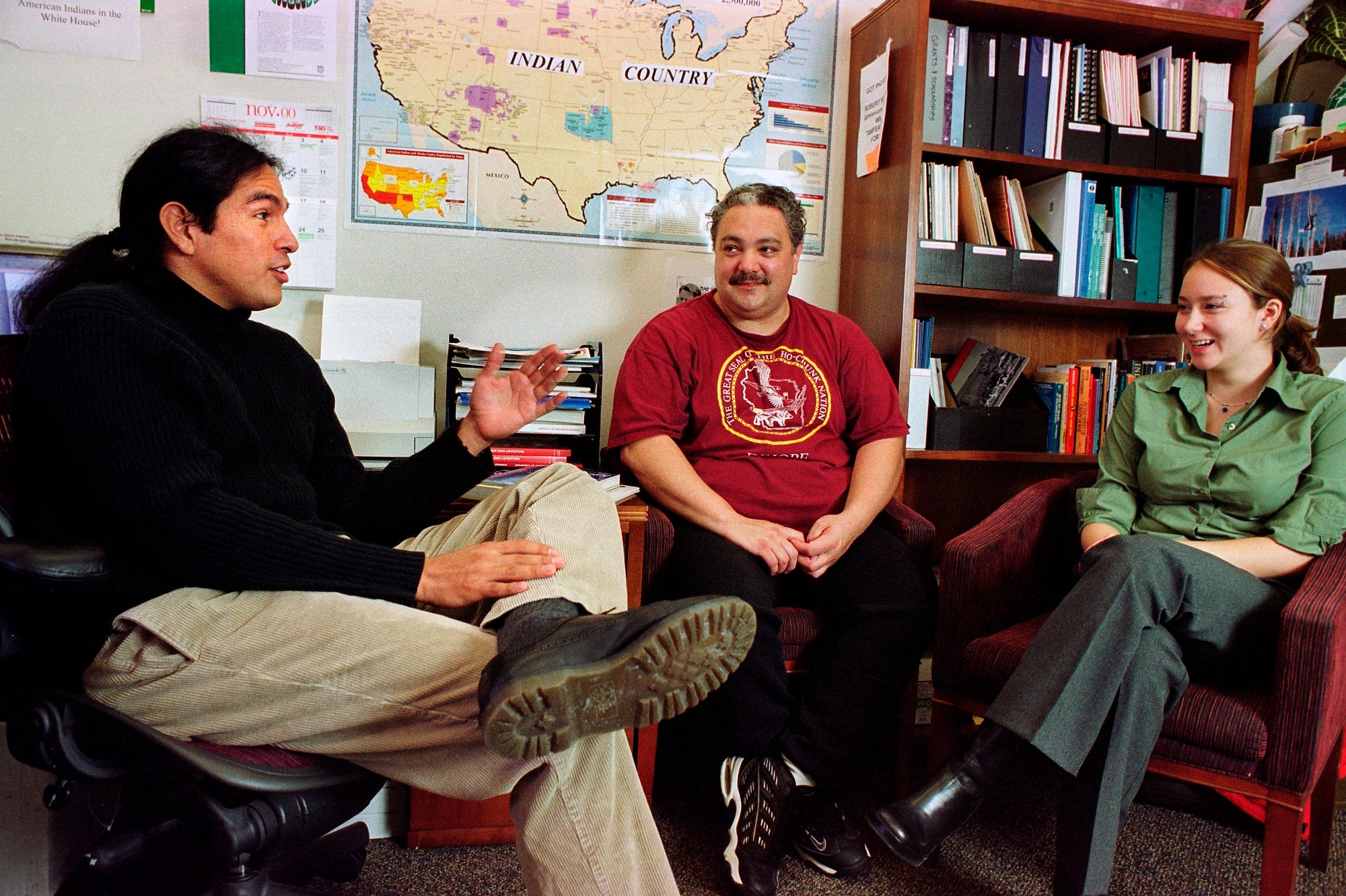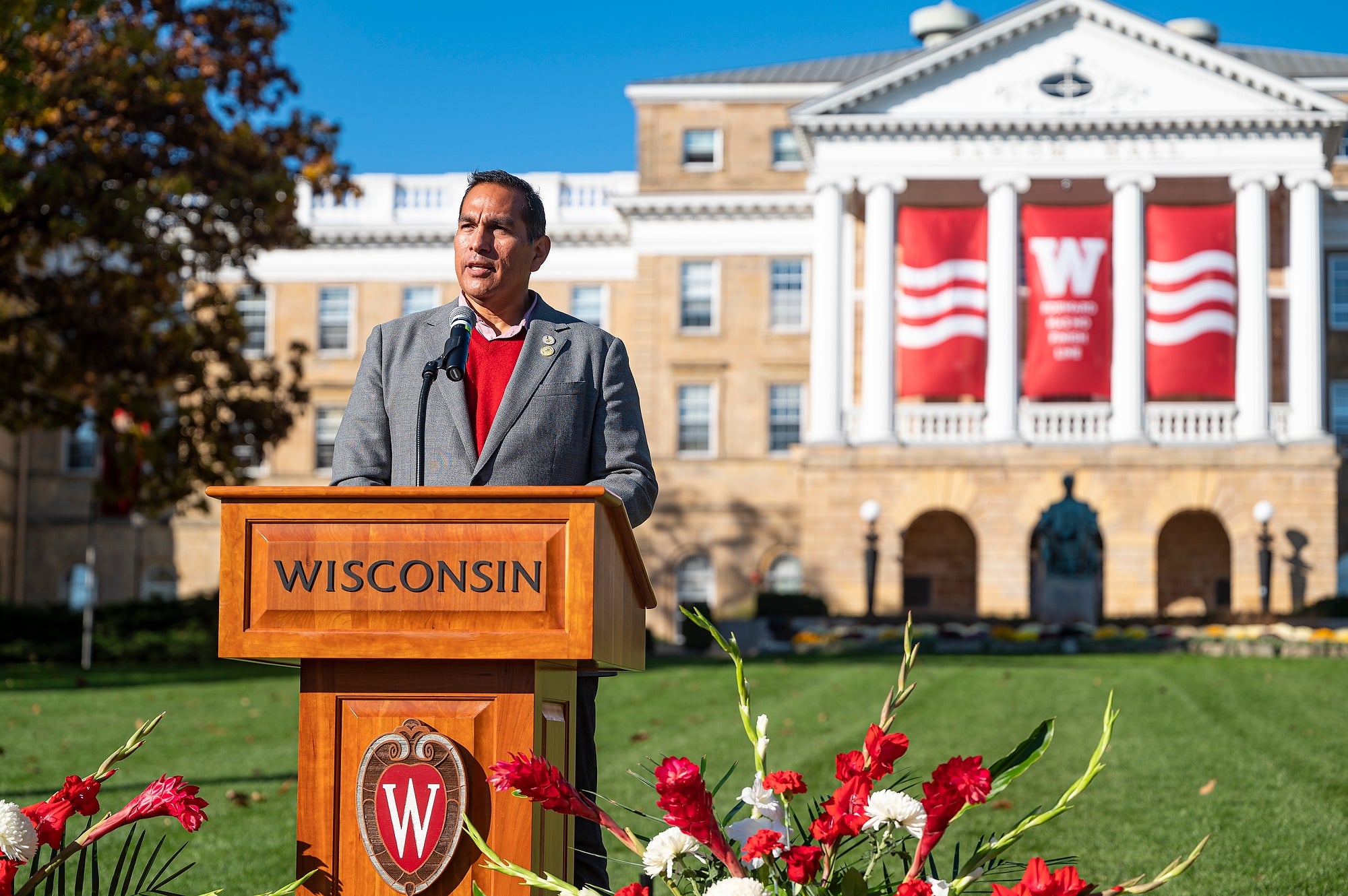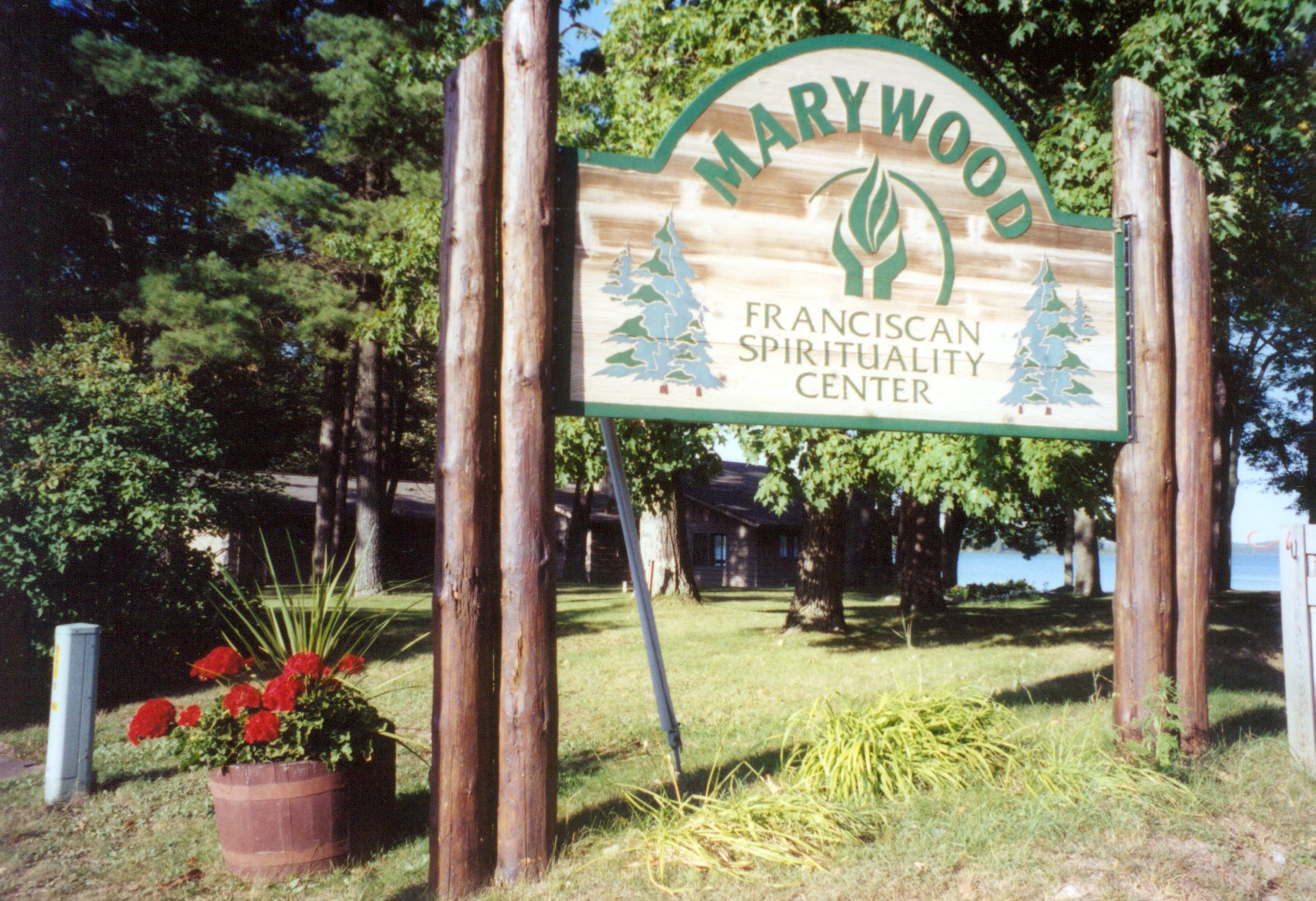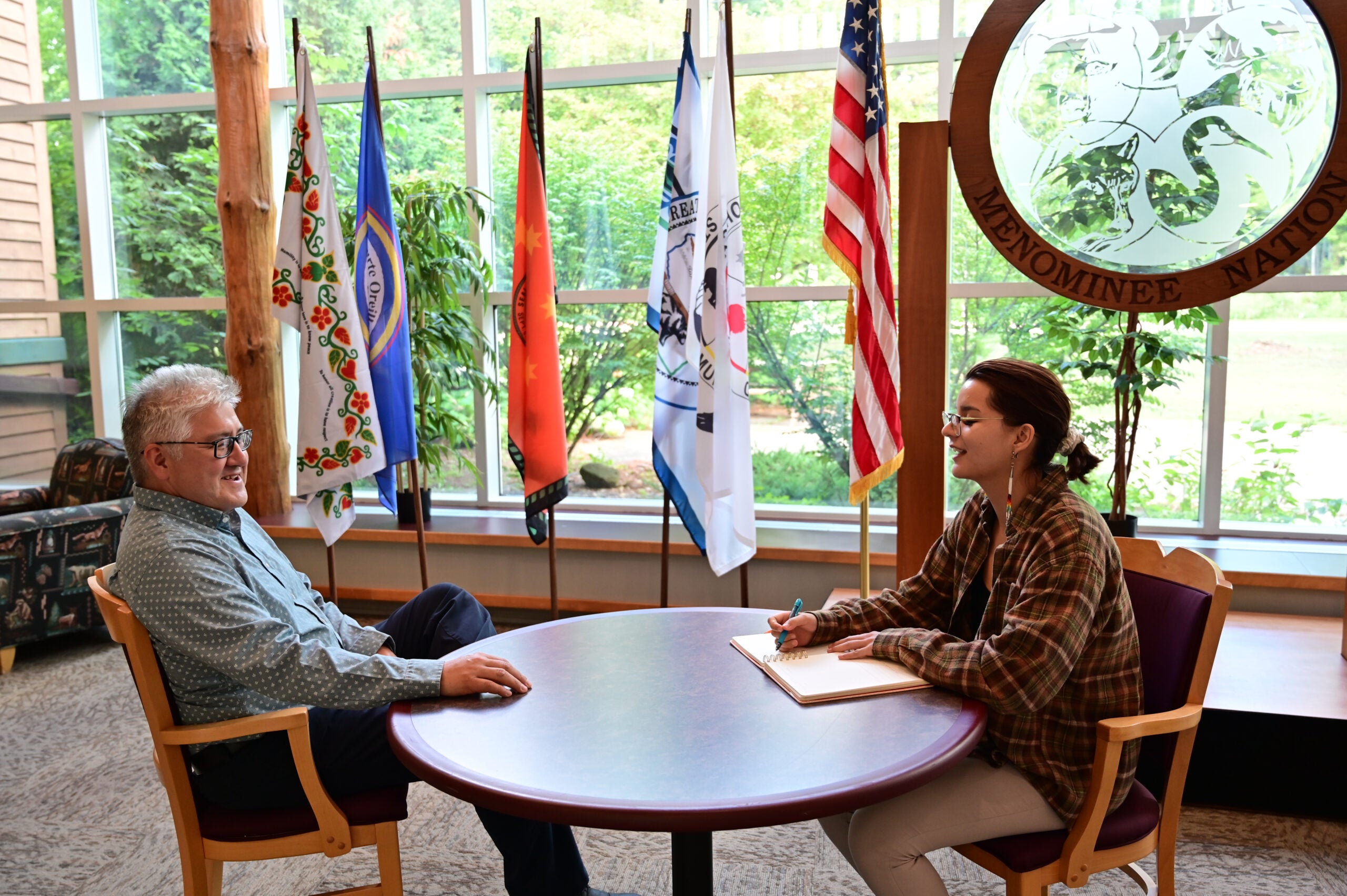The University of Wisconsin-Madison’s first tribal relations director is retiring Jan. 1 after working at the campus for more than 20 years.
Aaron Bird Bear became the school’s tribal relations director in 2019. He is enrolled in the Three Affiliated Tribes of the Fort Berthold Reservation in North Dakota and is a citizen of the Mandan, Hidatsa and Diné nations, according to the university.
Bird Bear recently joined Wisconsin Public Radio’s “Central Time” to reflect on his time at the state’s flagship public university. He discussed what the campus needed when he arrived, efforts at retaining Indigenous students and the waves he sees in his future.
News with a little more humanity
WPR’s “Wisconsin Today” newsletter keeps you connected to the state you love without feeling overwhelmed. No paywall. No agenda. No corporate filter.
The following was edited for clarity and brevity.
Rob Ferrett: What brought you to UW-Madison?
Aaron Bird Bear: I came to UW-Madison to help strengthen the Native American student community in partnership with the history faculty.
RF: What struck you about what was and wasn’t available here?
ABB: There wasn’t a strong acknowledgment of the Indigeneity of the space itself. There were Native American student groups that had been active since the late 1960s, early 1970s. So, there was an Indigenous student presence.
There was also the American Indian Studies Program, which offered numerous courses and different types of academic programing, such as the storytelling festival where they invite Indigenous speakers of their languages to share parts of their culture during the winter time.
Beyond that, there wasn’t a lot of real visible Native American presence at the institution, which I found surprising because I had just come from the University of Washington-Seattle, which is one of the leading research universities in the U.S. for engaging Native nations and representing Native American cultures on the campus.
RF: What did you do to address some of the absences you saw here before the creation of the role you hold now?
ABB: I think about the incredible Native American campus community of faculty, staff and students. Everybody had been chipping in in some way to help fulfill the absence of a tribal relations director or tribal liaison role at this institution.
Although we already had full-time jobs on campus, various parts of campus would reach out to us Indigenous faculty, staff and student community members and asked us to help with different projects that intersected with Indigenous nations in some way.
RF: I understand you have led many tours on campus. What was that like?
ABB: Back in 2003, we created the First Nations Cultural Landscape Tour as a retention vehicle for Native American students at the institution. (There) used to be significant first-year retention challenges for American Indian students. This tour was designed to highlight how special of a place this is.
Over the years, we’ve offered many tours. In the height of pre-pandemic (times), my colleague Omar Poler, the Indigenous education coordinator in the Office of the Provost, and I offered 128 tours in the 2018-19 academic year. And we don’t offer tours when it’s cold, so they were crammed into the beginning of semester.

RF: In 2019, you became UW-Madison’s first ever tribal relations director. What has that role meant to you?
ABB: It’s an emerging role in higher education. We’re not the first, by any means, to establish this type of position. The University of Washington-Seattle has had a position similar to this for a long period of time and started engaging in long-term relationships through memorandums of understanding with the tribal nations of the state of Washington back in the late 1990s. So, some universities have a 20-year head start on us in thinking about long-term relationships with Native nations.
It’s nice to see UW-Madison better fulfill the Wisconsin Idea by liaising with governments in the way it liaises with other governments, say city, state (and) local governments. We’ve had a director of federal relations for a long time, a director of state relations, a director of community relations, a director of corporate relations that is now called the Office of Business Engagement.
But for whatever reason, there was this lack of understanding to engage the … Native nations of Wisconsin.
RF: What’s next for you?
ABB: Retirement. That’s the exciting part. I’ve had a lot of pursuits over the years, and one that gave me a lot of spiritual nourishment was snowboarding. I was a skateboarder in the 1970s in Colorado and a snowboarder in the 1990s and 2000s, both in Colorado (and) here in Wisconsin. With my knees finally having had three knee surgeries from all my love of snowboarding, surfing is the next board sport that is on my horizon.
Surfing is an Indigenous tradition given to us by the Kingdom of Hawaii and the Indigenous inhabitants of that island. All these sports — skateboarding, snowboarding — are all derived from the Indigenous tradition of surfing.
Surfing just keeps you connected to the living world around us and allows us to really enjoy nature in ways that we might not otherwise. I’m thankful that these Indigenous traditions keep nourishing my spirit, as well.
Wisconsin Public Radio, © Copyright 2026, Board of Regents of the University of Wisconsin System and Wisconsin Educational Communications Board.






